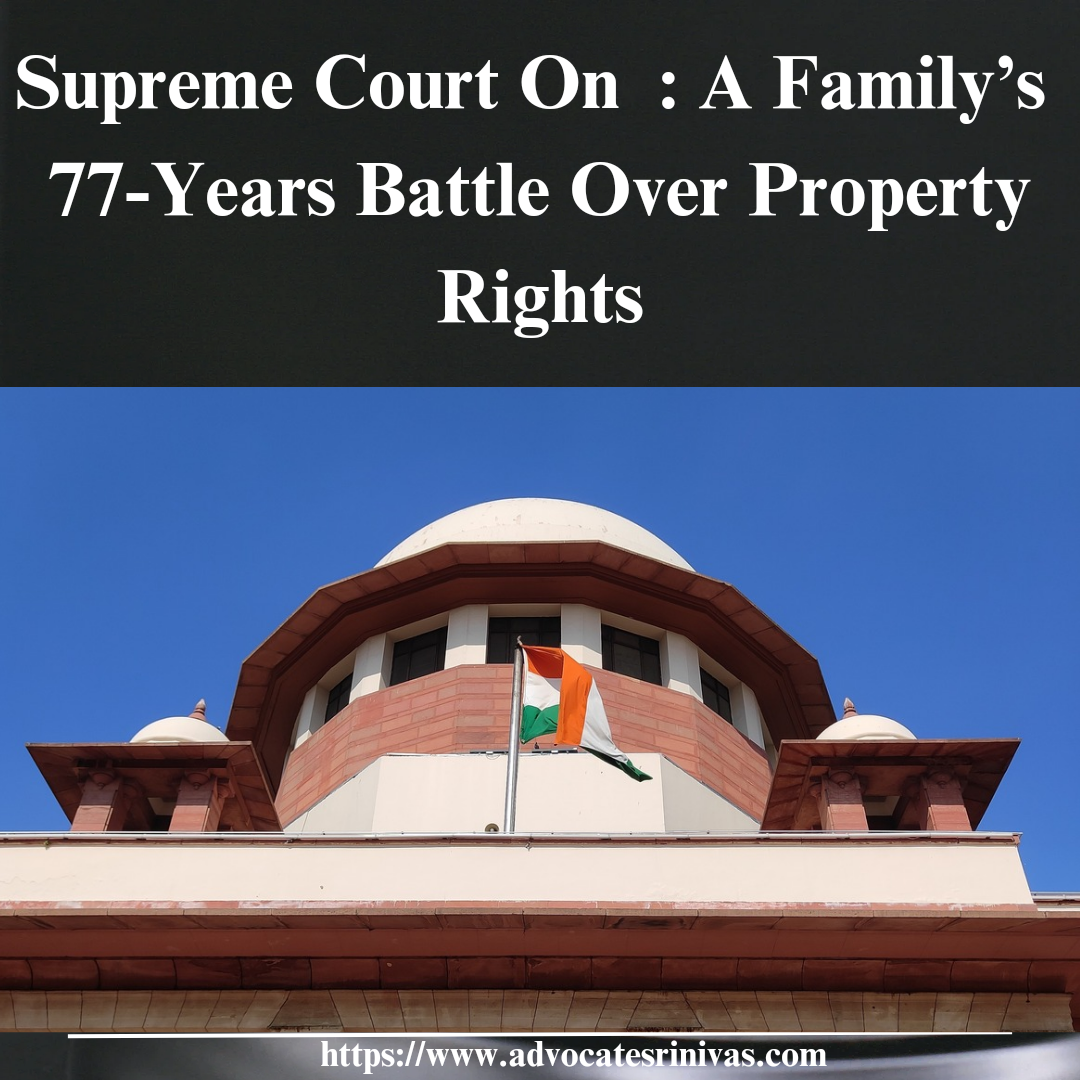This case revolves around a long-standing property dispute that traces back to 1947 and involves multiple generations of a family. Here's a breakdown of the story and the court's judgment.
The Beginning: A Property Settlement in 1947
In 1947, a woman named Thayammal transferred some property she inherited from her deceased husband. She divided the property among her two sons, Raghavulu Naidu and Munusamy Naidu, and gave certain rights to her daughter, Saroja. Fast forward to 1951, Saroja passed away, and shortly after, her husband, Gopalakrishnan, claimed his rights over the property on behalf of his deceased wife.
The Back-and-Forth of Settlement Deeds
A couple of settlement deeds followed:
1. First Settlement (1947): Thayammal gave her property rights to her sons and some future rights to her daughters.
2. Second Settlement (1952): The sons returned their rights to Thayammal, and she then gave absolute ownership to her sons, effectively cutting off the daughters’ line from any property rights.
3. Third Settlement (1952): Thayammal again settled the property in favor of her sons, excluding Saroja and her husband Gopalakrishnan from any claim.
Also Read: Co-Owner Cannot Sell Without Partition
The Legal Battle Begins
In 1993, Gopalakrishnan filed a suit claiming that he was the rightful owner of the property through his deceased wife, Saroja, under the original 1947 settlement. He argued that subsequent settlement deeds were invalid and that Saroja's rights had been wrongly extinguished.
Trial Court's Verdict
The trial court took a hard look at the timeline:
1. The first settlement deed was genuine, but the claim was barred by the statute of limitations since no timely legal action was taken when the second settlement deed was executed.
2. The court ruled against Gopalakrishnan, stating he had no right to the property since he filed the suit too late and never sought to challenge the later settlement deeds.
The Appeals and Final Judgment
Gopalakrishnan didn't give up. He appealed the case multiple times, but both the First Appellate Court and the High Court ruled against him for similar reasons: the claims were barred by time, and he had no valid grounds to overturn the previous decisions.
Finally, the Supreme Court upheld the lower courts' decisions. It emphasized that Gopalakrishnan's failure to file for possession or challenge the settlement deeds in time meant his case was weak from the start. The court pointed out that he was trying to enforce a right that had expired long ago under the law of limitations.
The Takeaway
This case serves as a reminder of how critical it is to act promptly in legal matters, especially when it involves complex family properties and inheritance rights. The courts don’t look kindly on delays, and if you sleep on your rights, the law may not be on your side when you finally decide to act.

